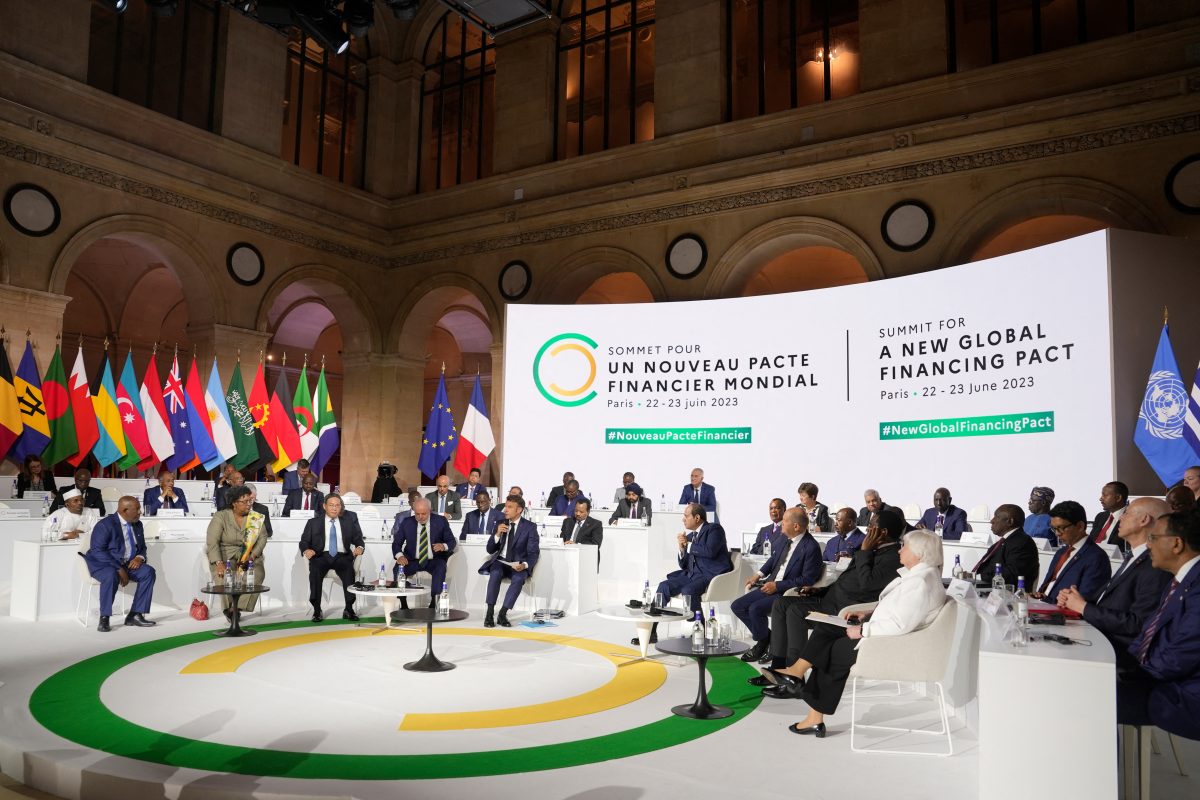The recent Paris Summit for a New Global Financing Pact brought together world leaders to address the pressing need for a resilient and sustainable financial architecture. The summit discussions focused on critical issues such as debt restructuring, climate finance, international financial institution reforms, taxation, regional cooperation, and public-private partnerships.
While the commitments made at the summit may not have met the high expectations that were generated ahead of this gathering, they mark a significant step in the direction of travel necessary to reshape the current international financial system.
Key priorities for change
One of the key priorities highlighted at the summit was the urgent need for access to liquidity, debt restructuring and relief measures for the most vulnerable. Countries grappling with the economic fallout of the pandemic and the impact of the war in Ukraine require comprehensive and transparent processes that consider the social and environmental consequences of their debt burdens. The summit recognised this imperative and called for a speedier, fairer, and equitable debt restructuring mechanisms to alleviate the burden on struggling nations.
The summit underscored the crucial role of financing in driving the transition to a low-carbon economy. Leaders emphasised the necessity of mobilising substantial resources for climate action, including meeting the $100bn annual commitment to developing countries under the Paris Climate Agreement. To achieve this, innovative financing mechanisms like green bonds and carbon pricing were discussed as means to attract private sector investment into climate-friendly projects. They need to be ethical and favour the geographies that contribute to carbon capture already and can do more to increase it, not the intermediaries that are benefiting from them.
Recognising the need for a more inclusive and responsive global financial architecture requires comprehensive reforms of international financial institutions such as the IMF and the World Bank to reflect today’s world, with an emphasis on amplifying the voices of developing countries in decision-making processes. Global South at the summit were calling for drastic changes rather than incremental reforms.
Another important global debate gaining new momentum concerns global taxation. Prominent topics discussed at the summit included the creation of fairer international tax arrangements, dealing with base erosion and profit shifting practices and how to combat illicit financial flows. World leaders stressed the importance of ensuring that multinational corporations contribute their fair share of taxes, while enhancing cooperation to tackle tax evasion and money laundering.
Related articles
- Reform of international financial system urgently needed, says Afreximbank’s chief economist
- Reforming the global debt architecture
- We must redesign global financial architecture, says Barbados PM Mia Mottley
The summit highlighted the significant role of regional financial arrangements in promoting stability, resilience, and development. Leaders recognised the potential of regional initiatives to address specific challenges and leverage regional resources for sustainable development. The establishment of mechanisms for regional liquidity support and crisis management was discussed, emphasising the need for enhanced cooperation among regional financial institutions.
Acknowledging the crucial role of public-private partnerships in mobilising finance for sustainable development, the summit called for responsible investment frameworks. These frameworks would ensure that private sector investments align with sustainable development goals, including robust social and environmental safeguards. The summit recognised the potential of such partnerships to drive sustainable development efforts forward.
It is important to acknowledge the challenges ahead. Broad agendas, such as the one discussed at the summit, often result in a fragmented and piecemeal approach, with leaders making announcements that may not deliver significant change. To avoid this, there needs to be a clear outcome agenda and a robust diplomatic operation that holds attendees accountable for ambitious and additional commitments.
Moreover, in a world where geopolitical dynamics are shifting, and countries like China and Russia are gaining influence, it is essential that Europe and North America demonstrate a genuine commitment to their partnerships with countries in the Global South. Failure to do so could further embed the sentiment that the global financial system is controlled by a select few and perpetuates inequality.
The need for a new Bretton Woods
To achieve a truly transformative reform of the global financial system, it is crucial to establish a new Bretton Woods framework that addresses the current shortcomings and imbalances. This framework should prioritise inclusivity, fairness, and sustainability.
Furthermore, the new framework should prioritise the mobilisation of public and private finance for sustainable development. This involves creating mechanisms to incentivise private investment in areas such as renewable energy, infrastructure development, and social programmes. By aligning financial incentives with sustainable goals, we can unlock significant resources for inclusive and environmentally friendly development.
A new Bretton Woods framework holds immense potential for Africa, bringing with it the promise of increased representation, debt relief, access to finance, and green industrialisation. It could empower African nations to shape global financial policies, alleviate the burden of debt, mobilise resources for development, tackle climate change, and drive innovation.
It can, potentially, contribute to the real structural transformation of the continent. However, its success hinges on the strong agency of African actors, particularly African governments and regional organisations, but also civil society and the private sector.

